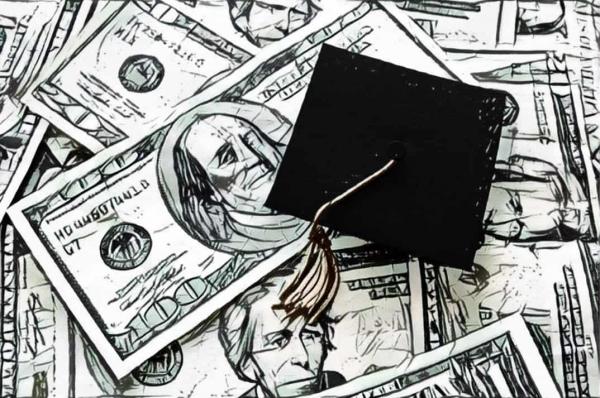
Last month, NPR published an interview with Sandy Baum, an author who claims that the student loan crisis is, "manufactured by the media in search of a spicy story and fueled by politicians pushing 'debt free college' proposals."
As a student loan survivor, I disagree.
There is a student loan problem, and it's an issue.
At 21, I took the dive into students loans and left graduate school with a hefty bill. When I got married, and my husband began graduate school, I was making payments, but I didn't have a good plan. We realized quickly that we needed to make changes in order to have a stable financial future.
It took a lot of work, but as of this week, we are completely student debt free. In total, we were able to pay off over $65K in student loans. Here is how we did it:
Step 1: Commit to paying it off
You have to want it. Paying off your loans quickly requires effort, so if you're not fully committed to making changes, you're not going to be motivated enough to follow through with your plan.
You need to be willing to sacrifice now, so you can reap the benefits later. Paying off loans is painful, but it's worth it. As Dave Ramsey always says, "If you will live like no one else, later you can live like no one else." A little bit of pain now is worth a lot of freedom in the future.
Step 2: Create a loan amortization schedule
Knowledge is power. Knowing how much you owe, and how much you have to pay each month to pay off your loan is important information (information that most people don't know). A loan amortization schedule allows you to play around with monthly payments, to see how long it will take you to get through your loan.
Step 3: Set a goal
Decide on how much money you would like to put toward you student loan each month and then pay it religiously. No excuses. Don't let anything get in the way. As soon as you get paid, make the payment, so you're not tempted to use the money for anything else.
Step 3: Follow a budget
Budgeting sounds like a painful and awful activity, but it's really not that bad. If you're not comfortable with Excel, use an online budgeting tool instead. We used YNAB. Both my husband and I put it on our phone, so we could track purchases as soon as they were made.
Step 4: Cut costs
Be purposeful about how you spend your money and avoid unnecessary purchases. If you don't need it, don't buy it. In order to save money, we cancelled my gym membership, changed our insurance to a cheaper plan and cut out the amount of times we went out to eat each month. We also learned how to use coupons and learned to wait for things to go on sale.
Step 5: Pick up extra work
Over the past four years, we've taken on a variety of gigs from freelance writing to teaching a college course to designing product prototypes for budding entrepreneurs. It's not fun to work all day at your regular job and go home and work more, but a few extra dollars here and there are nice to have. That extra money not only allowed us to pay off loans faster, but it also helped us go on fun trips, help with wedding costs, buy laptops and new furniture, and get my husband through school.
Paying loans off quickly takes sacrifice and focus, but it's worth it. You'll never regret making sacrifices now, so you can have a better future.
If you're still not sure about what to do, I recommend reading Dave Ramsey's Total Money Makeover. It's a great way to get started.

